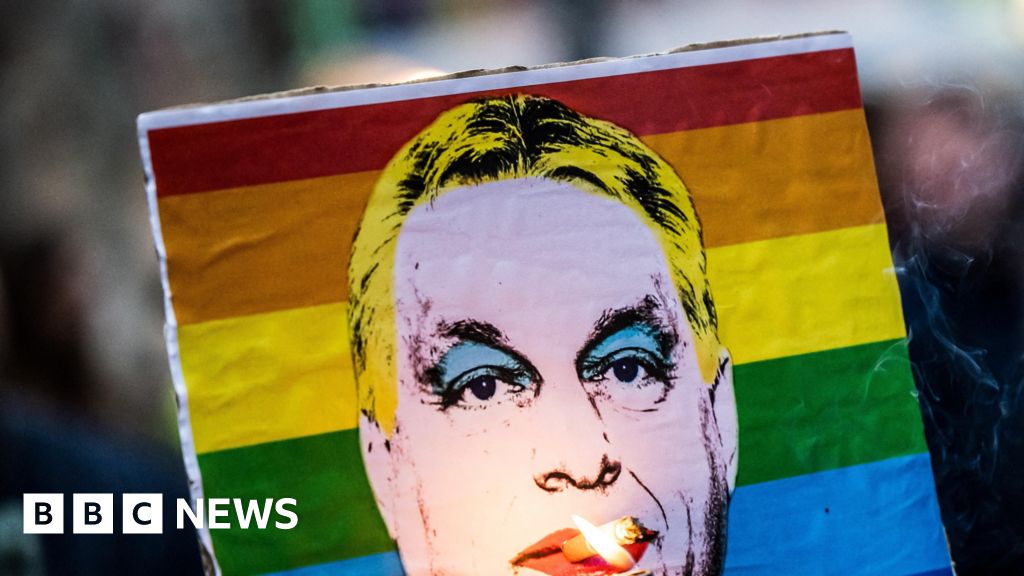ARTICLE AD BOX
A federal judge on Tuesday ordered the Trump administration to provide “stand-to-pee” devices to transgender prisoners who need them in order to adapt to their gender identity.
Judge Royce C. Lamberth said the government must also furnish other social accommodations that transgender prisoners need. Those include hair removal devices and chest binders to hide breasts.
The stand-to-pee devices provide a way for transgender men to use a urinal. Versions available online range from utilitarian funnels to devices billed as realistic rubber penises.
Transgender inmates would also be able to get clothing that corresponds with their gender identity.
Judge Lamberth’s order means the accommodations would be provided at taxpayer expense.
The judge said those services had been available before the Trump administration’s policy changes. He ordered them to be restored while the prisoners challenge President Trump’s executive orders limiting services for transgender inmates.
He said the government’s actions were too hasty and likely broke procedural law. He said as long as the lawsuit is going on, the Bureau of Prisons must provide anything prescribed for gender dysphoria needs.
“Under the [Administrative Procedure Act], the BOP may not arbitrarily deprive inmates of medications or other lifestyle accommodations that its own medical staff have deemed to be medically appropriate without considering the implications of that decision,” wrote the judge, a Reagan appointee to the court in Washington.
The transgender inmates had also challenged Mr. Trump’s actions as unconstitutional under the Eighth Amendment, which bars “cruel and unusual punishment.”
Judge Lamberth said that issue was left for another day. He did certify a class action for transgender prisoners in federal facilities.
Under Mr. Trump’s orders, the administration had also curtailed hormone medications for some inmates, but Judge Lamberth said those have now been restored.
The case comes amid a broader push by the Trump administration on gender issues. Mr. Trump has declared the government will recognize only two sexes, male and female. He ordered the government to use sex rather than gender as a marker in identity documents and policies.
He also barred federal funding to promote gender identity.
He specifically ordered the Bureau of Prisons to revise its policies on medical care for inmates to conform with his new directives, and “ensure that no federal funds are expended for any medical procedure, treatment, or drug for the purpose of conforming an inmate’s appearance to that of the opposite sex.”
The BOP then issued several policies carrying out Mr. Trump’s order. Among the things specifically banned were chest binders, hair removal devices and stand-to-pee devices.
Prisoners who’d been diagnosed with gender dysphoria and were already receiving social accommodations sued to keep them going.
One, Alishea Kingdom, is a transgender woman who received hormone injections and had been allowed to wear women’s underwear and use cosmetics until the Trump policy blocked it.
Her hormone treatment was restored after she sued, but the other social accommodations were not.
Solo Nichols, a transgender man diagnosed with gender dysphoria in 2021, had been receiving hormone injections and had men’s underwear and chest binders. His hormone shots were restored, but he said the lack of underwear left him feeling “like I can’t breathe.”
“I would feel inadequate and embarrassed,” he told the court.
Another transgender man, Jas Kapule, never lost his hormone treatments but was ordered to turn in his chest binders and boxers and was given women’s underwear, the judge said.
The Trump administration had argued in court that it never categorically banned hormone treatments and, in particular, said all three original plaintiffs were getting “medically necessary care.”
More than 600 federal inmates receive hormone medication, the government said.
Judge Lamberth is handling several other cases involving transgender inmates and has generally ruled against the administration, issuing injunctions halting transfers of transgender inmates to prisons that don’t correspond with their gender identity.

 3 weeks ago
34
3 weeks ago
34








 English (US) ·
English (US) ·